#Bengali Article
Explore tagged Tumblr posts
Text
It's so funny how sanghiblr will selectively criticize NCERT. They will harass them for sources about medieval and mughal history, but will parrot the "harappan and vedic civilisations are one and the same" bullshit in NCERT that has been proven to be false. Because that one fits their agenda and the ridiculous claim that aryans are indigenous or whatever.
#fr i reseached this a lot#its possible that harappans migrated south and in that case its dravidians that have the claim to indigeneity#aryans migrated from central asia they are foreigners as much as mughals are#and vedic culture is aryan culture by and large#ofc it is influenced by dravidian folk religions as things will influence each other but dravidian folk religions existed first#and in time got overshadowed by vedic culture#tho some aspects still survive. and that explains why south indian hinduism is so different#same thing happened with austro-asiatic religions in east asia#which is why bengali hinduism has a distinct flavour of tribalism and tantrikism#its so interesting fr id love to study it more#im too tired to source all my yapping in the tags but if you want to learn more then hmu with an ask ill happily recommend books/articles#sanghi bs#anti hindutva
12 notes
·
View notes
Text
My Angle Towards Yoga & Satvic Lifestyle
Do let us know your take on Satvic food and lifestyle
I’m a Bengali, a pseudo-Bengali and a pure non-vegetarian Bengali. Fish-swim-in-my-blood kind of Bengali. Since my birth, I have been into proper non-vegetarian food and not to mention, I do have weight issues too. However, that’s purely because of my carelessness and not focussing on my health, body, hair, face, skin at all. And the result – well! acne, weight gain, back pain, aches, etc,…

View On WordPress
#article#bangalore#benefits#bengali#biryani#Blog#blogpost#calcutta#curry#exercise#fish#food#fruits#greens#health#health issues#hungry#india#junk food#life#lifestyle#mother nature#non-veg#pasta#pizza#Post#satvic#satvic food#satvic movement#vegetarian
2 notes
·
View notes
Text
I've been reading a bit about Hijras and I'm kinda curious if anyone here has any informative readings they'd recommend?
#i read one article on hijra bengali refugees that was interesting if anyone wants it#but overall the search for sources is producing varied results
0 notes
Text
Banglar Jamidar O Rayater Katha by Kamal Chowdhury Bengali Book Pdf
Banglar Jamidar O Rayater Katha by Kamal Chowdhury Bengali Book Pdfebook name- ‘Banglar Jamidar O Rayater Katha’Written by- Kamal ChowdhuryBook genre- Historical Article BookFile format- PDFPDF Size- 59MbPages- 626Quality- Good, without any watermark The emergence of the zamindari system in this Bangadesh was not God’s blessing. The foreign English rulers in a complex process subjugated the…

View On WordPress
0 notes
Text
Do you guys know what was the biggest surrender of our history after world war two?
It was the surrender of Pakistani military against Bangladeshi
On 16 December 1971.
But today I didn't grab your attention only to give you some random history facts.
We Bangladeshi students need your help! So please read this article till the end
After the partition of the Indian region in 1947, two independent nations were born.One India and one Pakistan.
The country of Pakistan was divided into two parts, East Pakistan, currently Bangladesh and West Pakistan, currently Pakistan.
But the distance between the two regions was thousands of kilometers. So uniting them into one singular nation was definitely foolish.
To think that the partition actually happened because of religion is laughable on itself but this is a topic of debate for another blog.
Even though we got our freedom from the British empire the people of East Pakistan kept on getting exploited by the west pakistan government.
Note, from now on I will refer to East Pakistan only as Bangladesh because the way we were exploited by our own so called government which only resided on the west pakistan and left us on poverty clearly indicates they never saw us as their own people.
Pakistan didn't only exploit us politically and financially, but they also tried to take away our unique Bengali identity from us.
They banned our traditional Bengali festivals like Noboborso (which is Bengali new year) They tried to ban Rabindra sangeet in fact, they even tried to replace our Bengali alphabet with the Urdu alphabet.
People were already protesting against it and were participating in every traditional festival
But the elastic snapped when they tried to take away our mother tongue, Bangla
When a pakistani politician made the announcement that "Urdu and only Urdu will be the only national language of Pakistan" in Dhaka university's convocation, it was the students who roared in disapproval.
In 1952, breaking the curfew, students and common people went on a protest for our mother language Bangla.
The police started to shoot them and the soil of Bangladesh became stained with blood and Bangla became the only language for people had given up their lives.
That's why we celebrate "Sahid dibos" and "international mother language day" on 21st February.
Throughout the fight for our existence, freedom and culture, students of our nation had always played a crucial role.
They also made a student's political party "Chatro league"
After the election of 1970, when the Pakistani government didn't agree to give power to the Bangladeshi political party "Awami league" our students again started to organize protests and other activities
Finally "Awami league" ordered for a mass protest. 2nd march Dhaka and 3rd march the whole Bangladesh was shut down.
On 2nd march 11 am "Chatro league" students hoisted the flag of Bangladesh in Dhaka university.
All this information dump was for you all to understand how the students of Bangladesh had always played a crucial part in our liberation.
Our students have always been fierce and had stood up for injustice even if they had to sacrifice their life for it.
And right now history is repeating itself!!!
Again students are getting attacked because of their protests but this time, it was our so-called "chatro league" and the government who are doing this inhumane act.
They are beating the students with rods, throwing bricks at them and even police are shooting them.
Only because we wanted the quota policy to demolish. Only because we wanted equal opportunity for civil jobs.
On 25th march 1971, the Pakistani military committed genocide in Dhaka. They attacked sleeping students in Dhaka university and protesters on roads who were still protesting at night.
And now the same thing is happening, history is repeating itself.
Students of public universities are getting attacked in their own dorm rooms, they are getting beaten to death by the so-called "chatro league" members. There are screenshots of the chatro league leaders group chats flothing around the internet where they command the other members to stab the protester students.
There was a time when Chatro league claimed they always stood up when our mother and sisters needed protection
And now those same people are beating up those same sisters they vowed to protect

The police are shooting the protesters like they did in 1952 language movement
The only difference is in the past we were oppressed by another nation's government
But this time it's our own people who are causing our student's blood to stain our roads.
Please do not ignore us. Reblog this post or use the hastag #savebangladeshistudents to create awareness
#savebangladeshistudents#justiceforbangladeshistudents#alleyesonjahangirnagaruniversity#alleyesondhakauniversity
54 notes
·
View notes
Note
what do you think fry's family is like!!! i love him sooo much every time you draw him it's like a gift 🥺🥺🥺
WAUGHGHGHJ these Fry questions make me so happy since he's my Blorbo(TM) <3 Gah I'm itching to talk about him, so ask and you shall deserve!! Also thank you SO much I'm so glad you love my art <33

little sketches related to what I'm about to yap about. ANYWAYS here's wonderwall
So on my old account I used to hc he is Indian-British, whose family hails from Travancore (Kerala nowadays). This was based on what I ASSUMED was canon info since back in January, all Chicken Run wiki articles about him mentioned he's Indian-British. But apparently that's not 100% settled info what his ethnicity is?? And the wikis have been edited since. His VA Nick Mohammed is from a mixed Cypriot/Indo-Trinidadian family though and I spent time reading about Indian-British immigrant history to get Fry's characterization accurate, so imma keep with that hc.
Anyway! I headcanon Marcus is the only child of wealthy businessmen that owned a highly successful trade company. His Vaishya grandparents moved to Britain during the late Victorian era; after all one of the only ways a PoC family could make it back then in Britain was by being filthy rich, and very early on the Fry family had been forced to adopt a "British" way of living in order to be taken seriously by the shitass imperial society. Such as switching to a British surname and avoiding to display too much of their original culture in public. A colonial trauma that still prevails, since Fry's parents christened him with a heavily English name.
I REEEALLY wanna give a try to designing Fry's parents sometime!! But I imagine his parents as sort of a healthier parallel to Melisha's parents; his father is a pristine and calm gentleman with a soothing voice and a love for theatre and literature (a trait that Marcus inherited LMAO) while his mother is more stern, headstrong and very, VERY proud of her status. (but she also has a infectuous smile and laughter and has a bombastic overdramatic streak...something that Fry inherited as well)
They're both native Malayam speakers, and while their family in public strives to keep Keralite culture hidden, they made sure to teach Marcus to speak his native language fluently as well, along with Hindi, Bengali, Tegulu and Tamil. Along with that, they frequently go on family trips to Travancore and enjoy things like inji neer, Kathakali performances (which inspired Fry on his love for theatre <3) and Carnatic music.
Both parents pushed Marcus to study hard and gain multiple academic degrees - it was all out of love and concern, because they wanted Marcus to be able to survive in the cruel world out there without only relying on his money. (Once again, a PoC immigrant family experience that I can identify with as well... even if society nowadays is not nearly as racist as it was back then, unfortunately PoC people are often forced to study waaaay harder than white people in order to make it.) Because they had lived through the years of great depression in the 1930s, and while they managed to survive with most of their wealth intact, they knew that one should not rely only on money for support since anything could happen.
Fry, as a child, was a gifted A+ grade student and a very well-behaved, so his parents called him a little ray of sunshine and a future hope. He yearned to be perfect so his parents would never be disappointed in him. Something that later on contributed MASSIVELY to Fry's gifted child burnout, and how he adopted a sinister, sadistic fascination with mind control and manipulation during his Cambridge years.
Once Marcus came out as trans and genderfluid to his parents, his father was very patient and accepting, but his mother spent several years in denial before finally accepting him. Not directly out of transphobia - but because she was afraid that Marcus would be discriminated, attacked and hurt by people, and that he should focus first on building a career for himself instead of bringing a bad name to the Fry family like this, with an outrageous gender identity. But she soon realized that hiding himself would only hurt her child on the long run. Also - the way Fry managed to fully bribe (cough mind control cough) British officials to switch the gender in his personal info and passport was nothing less than impressive to both of his parents LMFAOOOO and they're very proud
However despite all of this, Fry retains a loving relationship to his parents!! He goes to their mansion every Christmas, and they're also VERY accepting and encouraging to his marriage to Melisha. In fact, his mom was relieved to see Fry had married a very orderly, stern and no-nonsense woman, because Marcus had always been a scatterbrained mess and a reckless money-spender. He made a wonderful scientist, but business-running had never been his thing, so Melisha taking care of all that is like a lottery win to the Fry parents. ESPECIALLY since Melisha came from a poor household - a woman like this, who knows what it's like to live at the rock bottom, surely knows to keep Marcus humble and not let him make flimsy business decisions!! (either way Melisha is still a bit intimidated by Fry's mom, which says a lot considering what kind of a girl Melisha herself is LMFAO)
Pluuuus... the Harsh Expectations(TM) is something that Melisha can relate to </3 It's something that catches her entirely off guard, when she learns this detail about Fry's past. After all, the silly goofy doctor is like an endless ray of sunshine, he's rich and successful. (and we all know what Melisha's mother told her about money bringing happiness...) How could he ever have any worries or feelings of inferiority??
It's a detail that makes (in my hcs) Melisha fall even deeper in love with Fry and become tenfold more protective over him :''') <3 Once she realizes what a horrific burden this goofball is carrying on his back, and yet he still finds the energy every day to stay positive, be optimistic and support Melisha during her hard days.
50 notes
·
View notes
Text
FUCK YOU INTERNET FOR MAKING ME THINK ASSAD ZAMAN WAS PAKISTANI. FUCK AI BEING USED FOR ARTICLES.
I LITERALLY LOOKED AT HIM AND SAID THAT'S A BENGALI MAN. HIM WITH A BEARD IS LITERALLY MY (RELATED) UNCLE
BUT WHEN I SEARCHED IT UP EVERYTHING SAID PAKISTANI AND I WAS GOBSMACKED, BUT I ACCEPTED IT
AND NOW I FIND OUT HE IS BENGALI
THE SHEER MISINFORMATION CAUSE OF AI ISTG



#my post#iwtv#desiblr#armand#joy bangla#the vampire armand#vampire armand#armand iwtv#amc iwtv#assad zaman#bengali#artificial intelligence#ai#NOT CALLING THIS MAN PAKISTANI#AS IF CALLING BENGALI'S WHO LITERALLY GOT GENOCIDED BECAUSE PAKISTAN WANTED US TO BE EAST PAKISTAN IS A TOTALLY NORMAL THING#fuck ai all my homies hate ai
44 notes
·
View notes
Text


Onstage at the Concert for Bangladesh, August 1, 1971; photographer unnamed; (photo 2) the artists.
“When George Harrison and Bob Dylan unexpectedly joined voices in two benefit concerts at New York’s Madison Square Garden last week, the 40,000 persons lucky enough to be witness burst into a cheer that approached the sound required for levitation, a sound of delight and surprise that no one present is likely soon to forget. […] Always the least conspicuous of the Beatles, Harrison had never appeared on his own before and was doing so now only because his friend and teacher, the Bengali sitarist Ravi Shankar, had asked him to help raise money for the relief of East Pakistan refugees in India. Harrison responded by composing and recording a rocking hymn called Bangla Desh, then began marshaling talents for the concert. […] As a good gesture done with grace and beauty on an important scale, George’s effort was in a class entirely to itself.” - article by Barry Farrell, Life, August 13, 1971 (x)
#George Harrison#Ravi Shankar#Bob Dylan#et al.#quote#quotes about George#Concert for Bangladesh#1971#1970s#fits queue like a glove
33 notes
·
View notes
Text
One of the things I didn't expect to find myself in while going down a semi-deep search of Les Misérables adaptations, was to find myself having been fooled by obvious British propaganda. Of course with this revelation, I have to undo its damage by educating myself, but more importantly, this is about the portrayal of the Quit India Movement (1942-5) from Kundan, released in 1955.
I know many of the people who interact with me online are not British (lucky you), I do want to explain what the misleading education is for us in the education system: no mention of India.
When we talk about the British Empire, it was very brief and not a proper topic to be questioned on, etc. Of course, with this knowledge of the gigantic holes in education, one wouldn't be surprised to know that we were not officially taught of India, Bangladesh, and Pakistan. (We also weren't taught of other countries under the Empire.)
One of the very few things we were given were quotes from leaders who 'liberated' India, by saying that the British were so moved by the peaceful protests, that we let them go. This is harmful thinking, and obviously not true.
For the longest time, I thought the way it was phrased was wrong and that the leaders were racists still; however I never questioned the contents of the words. That yes indeed it was a completely peaceful protest (with no civil disobedience either), and only from watching a Hindi movie about the protest movement was I able to find out that this was way further from the truth than I imagined.
There were fights, guns, smokes, arson, flogging: violence. It was a protest. A successful protest which violence played a role in.
India fought long, and very long they officially fought and argued with the Brits for better treatment, and they fought hard. That's something I will try not let swept under the rug. (Not to mention that the Empire stole tens of trillions of pounds from India and then subsequently fractured the country.)
It's art like these which wakes people up from propaganda. Art is also educational.
I know this can be frustrating (and obvious in its conclusion) to read this post if you knew about basic recent Indian history, but I am truly trying to learn and undo the colonial mindset that I was brought up in when I moved to England. I've linked sources for others like me who may not have encountered educational materials surrounding the Quit India Movement, so if anyone is interested, click the 'keep reading' button.
Anyways, if you know me you already know Kundan is my favourite on-screen adaptation of Les Misérables; but jic this reaches to people outside of my small audience in a big stroke of luck, then yeah, I want to reiterate that this adaptation is goated. Have a nice day, everybody.
Have a read:
https://southasia.ucla.edu/history-politics/gandhi/quit-india/
"Women were prominent in the Quit India Movement that began in 1942. When the movement spread to the countryside, large number of peasant women joined men in protesting taxes, land tenure, and landholder's rights. At the end of September 1942, peasants attacked police stations and destroyed telegraph lines in four sub-divisions of Medinipur district. When people of Tamluk sub-division marched on the town, Matangini Hazra, a 73-year old widow, stepped forward, lifted the Congress flag, and gave her first public speech. She was shot first in the hand holding the flag and then in the head.
Two Bengali women, Aruna Ganguli Asaf Ali (1909-1996) and Sucheta Mazumdar Kripalani (1908-1974), both domiciled in other parts of the country, became all-India leaders in this movement. In 1942 Aruna Asaf Ali went underground to organise the resistance and hinder the war effort. Sucheta Kripalani also went into hiding in 1942, but she worked to co-ordinate non-violent activity to bring the government to a standstill.
The Bengal Famine of 1943-1944 caused the death of at least 3.5 million people and the impoverishment and dislocation of millions more. Women who previously earned a living by husking paddy or trading in the local market were deprived of their incomes. In addition to food shortages, women faced sexual harassment when they sought employment or help from relief centres. During the famine years, women were visible both as victims and activists. Starving women begged for food in public places, while middle-class women worked to provide relief." -Banglapedia, titled 'Women'
Kundan:
youtube
25 notes
·
View notes
Text
subho noboborsho to those who celebrate. i just wish circumstances were different, that bengal wasn't turned into a burning ghat by state sponsored criminals. the biggest gift we bengalis can receive this new year is article 355 being applied to bengal. we are sick of being the targets of violence. every month, a new incident in this state. the toll this takes on us is very real. please. let us rest. you have the power to save this state. use it.
7 notes
·
View notes
Text

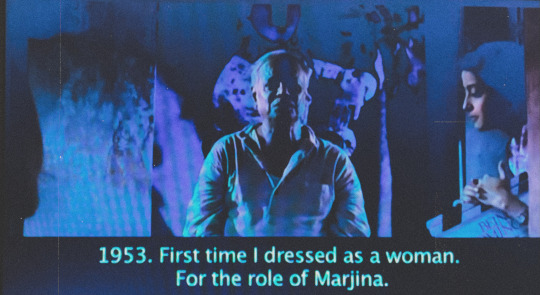
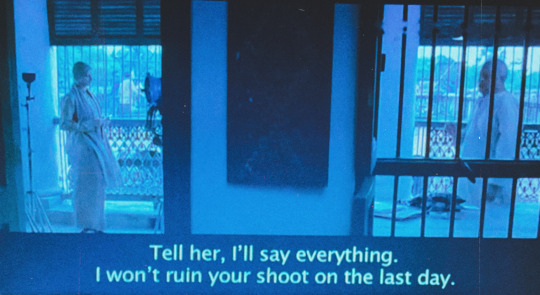
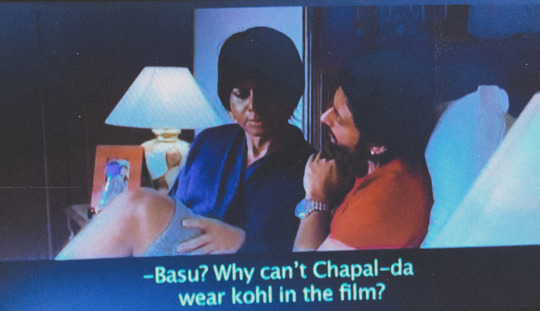
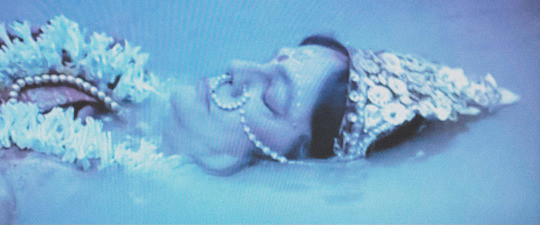

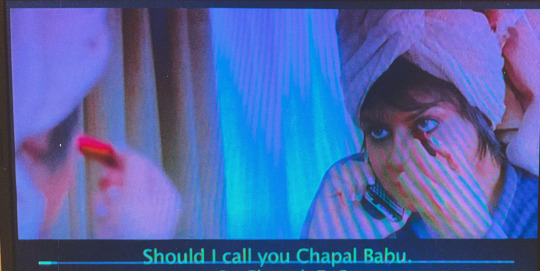
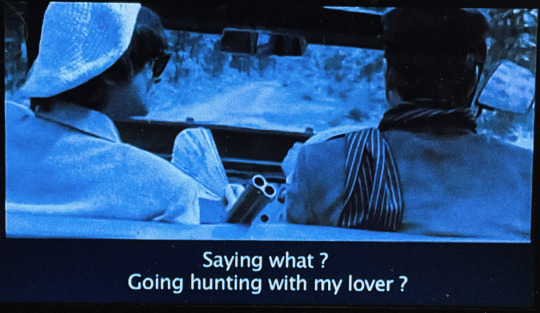


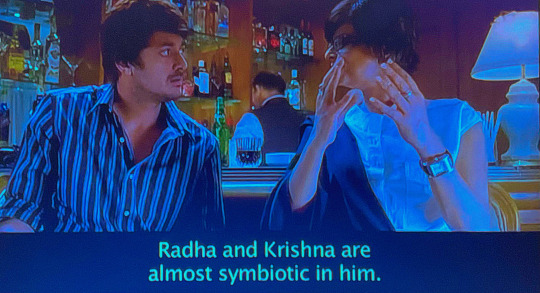
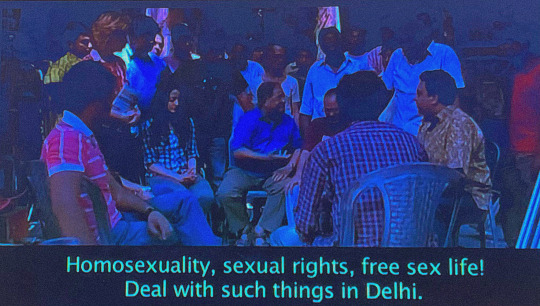
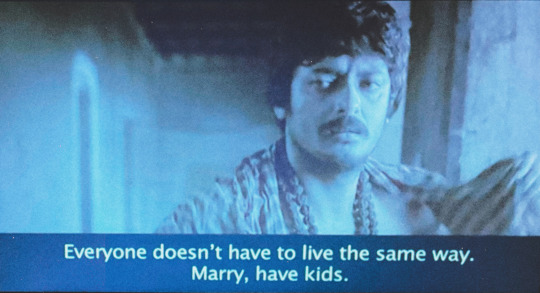
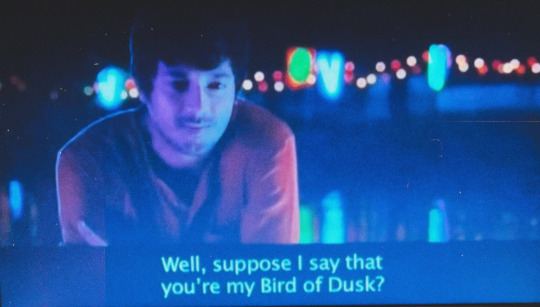

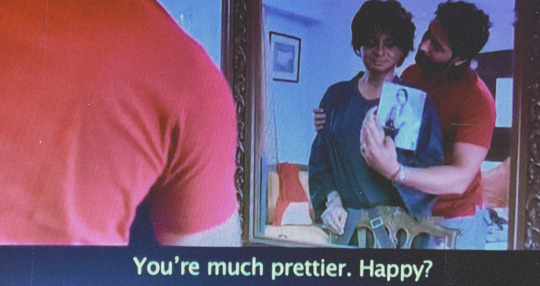
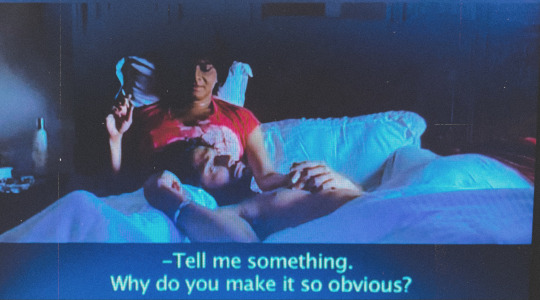
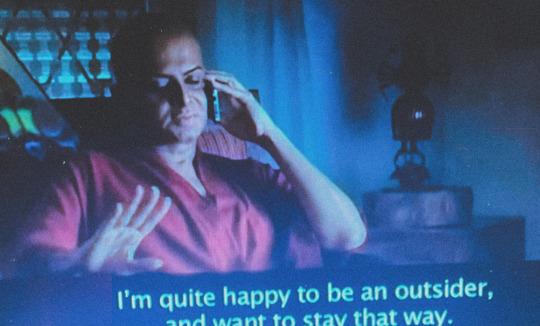


Arekti Premer Golpo (2010)/// Rituporno Ghosh
As a brown skinned queer girl, born in a country where identifying as *not straight* will get you to jail, I really didn’t have much icons to look up to growing up. The activists in the only formal LGBTQ organisation in our country were all killed off in 2013 (a hushed topic no one knows), so it’s scary as hell. Classmates calling me *hijra* because I liked girls along with boys. Frenemies sending me advice articles on *how not to be gay*. Juniors laughing at my *gender identity* and pronouns. I’ve had it all.
My mom always liked Rituporno Ghosh, saying his films equate to art, but would never show me who he was. Why? My young self wandered off and researched him up a bit. I was shocked to find an androgynous role model, a person who shared the same skin tone as me. It might sound silly today, but it surely meant a lot to the 13 year old fuddled up about her identity in the world.
Years have passed. I’m comfortable in my own skin. I’ve learnt to cut off remarks that do not matter. Ex boyfriend texted that I *looked gay* in a certain Instagram post, I replied *omg thanks <3*. Pansexuality has become such a deep part of me today that it doesn’t feel different. I’m the same human, ok?
I decided to watch up Rituporno’s most iconic film today. It is not a very *talked about film* in the Bengali industry.
Rituporno introduces melancholy as the main theme of the entire story. A gay man wanting to hide behind the story of the film he’s making. Being in love with someone he can’t have forever. As “Basu” describes in a shot, they’re lovers on the run.
Drawing from historic references and *Jatra*, he also explores the androgyny in the Bengali traditions. It magnifies the aesthetic appeal of the film even more. Lovely lovely camera work.
One of the main successes of the themes of “Arekti Premer Golpo”, in my opinion, is that it is close to reality than most other queer stories. The other upbeat netflix series stuff show a very utopian world where LGBTQ lovers live in an accepting world, almost isolated to only themselves. But Rituporno illustrates complex relationship dynamics in his films, leaving the audience to wonder the real chemistry between them (I still need to research).
It’s brain food, it’s thoughtful. I love it.
absolutely 9/10.
@jukti-torko-golpo @amar-hiyar-majhe @shubhadeep385 @il-ragazzo @gorgpearllatte @augustineprime @dewaniiiii @faewong
#Films#lgbt#lgbt pride#queer#queer community#queer films#light academia#dark academia#desi girl#desiblr#girlblogging#gaslight gatekeep girlblog#this is a girlblog#Rituporno ghosh#bengali#bengali films#movies#cinema#movie review#bengaliblr#indian tumblr#indian#west bengal#bangladesh#queer rights#lgbt rights#lgbtqia rights
13 notes
·
View notes
Note
What's your opinion on Wes Anderson's movies and how he uses orientialism?
there are people far more more knowledgeable on this topic than me (here and here are articles on this written by Asian critics) so take anything i say about it with a grain of salt! I do love Moonrise Kingdom, Fantastic Mr Fox and the Life Aquatic because they inspired me loads as a writer growing up. I think that Wes Anderson has somewhat acknowledged the influence of South Asian cinema on his work, like when he dedicated Darjeeling Limited to Bengali director Satyajit Ray, BUT it doesn't really excuse his orientalism, racism and appropriation of various Asian aesthetics in films like Isle of Dogs, grand Budapest hotel, and The Life of Henry Sugar. It's clear he views non white cultures as merely another ingredient he can add to his films to make them more quirky. I haven't seen all his films, but I was uncomfortable at the way he framed characters of colour in gbh and the french dispatch. There's rarely, if ever, any real thought to the roles he casts people of colour in and they're mostly treated as accessories to white characters. That being said, I still admire his craft and think his films are strongest when he remembers how his stylising enhances story, rather than aestheticising for its own sake. I've even written an article about how much I hate people bastardising his style on TikTok because it's such a vain treatment of his work. But ultimately I do take issue with the racism and orientalism in his filmography, and think he serves as a reminder that being influenced by filmmakers of colour isn't a get out of racism free card and I think his films are strongest when they're just about sad sily white people.
30 notes
·
View notes
Note
Dr. Reames, a simple question from someone interested in history but who is not part of the academic world: in order to study Alexander the Great and Ancient Greece in general, how much Ancient Greek does one have to learn? Would you need to learn Demotic Greek or the many other dialects, such as the one from Macedonia? As in, you’d need to learn one or more versions of Ancient Greek?
Thank you in advance! I always enjoy your responses!
How Much Greek Do I Need to Read about Alexander?
It depends on how far you want to go…what’s your end-goal?
If you’ve no desire to make it a profession, the good news is you need very little Greek.
Most ancient Greek and Latin texts are available in translation in the major languages of (European) Classical studies: English, French, German, Italian. Now, if you want them in Polish, or Japanese, or Bengali, you’ll have more of an issue. But the Loeb Classical Library (and LOEB ONLINE) has English translations of virtually all extant (still existing) Greek and Latin sources, and if you’ve got access to a (larger) college library, they probably have them, even if you have to ask them to get things out of storage. Latin is red (PA6156); Greek is green (PA3612). Budé is the French version of Loeb, btw.
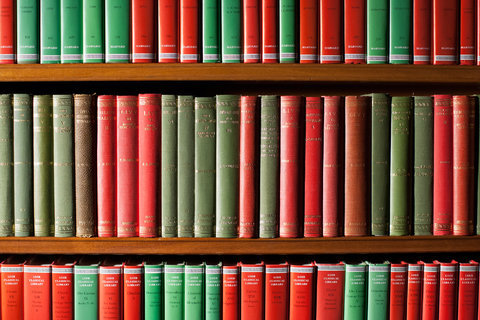
Loeb texts also have Greek and Latin on the facing page, but I mention them because they’ve got translations of (almost) everything. One can find cheaper versions without the Greek/Latin from Penguin, Oxford, et al. But those don’t have, say, Aelian, or Athenaeus, or the obscure texts of Plutarch’s Moralia. Loeb does. That said, the Alexander histories (Arrian, Curtius, Plutarch, Diodoros, and Justin) are all available in relatively cheap translations. Much earlier, in answer to a different ask, I listed our main sources on Alexander, extant and lost. It’s a longer read, but perhaps of interest.
(See below for more online sources in translation.)
So, no, you don’t need Greek. But, if you’re at least moderately serious about reading beyond pop history, you will want to learn a few Greek words to better “get” Greek sensibilities. Say, timē (τιμή), which means honor/public standing/esteem, but has all these attendant connotations. If you start reading the Serious Stuff (articles and academic books), authors will throw these around so it’s useful to know them, as they tend to carry an entire freight of meaning we don’t want to explain every time we use them. These are words I make my students learn in my intro to Greek History class (2510), so there aren’t many. (Undergrads put up with only so much, ha.) For Alexander, it’s also useful to know the Greek names of some units, such as the Somatophylakes (the royal Bodyguard of 7), or the Hypaspists (the specialist hoplite phalanx, not the same as the Foot Companions), or even the name of the long pike (sarissa). But you can make do quite well with a vocab of maybe 30± Greek terms.
It's only if you want to pursue research at the advanced (graduate) level that you’d need Greek. Even then, it’s mostly Attic Greek. The only time you’d need dialects is for quite specific study and/or epigraphy (inscriptions). Epigraphers are language specialists. Most of us, even the “pros,” don’t work at that level. But yes, if you’re getting into extensive examinations of passages, it’s good to understand the language for yourself, not have to trust a translation. Translations are, by definition, interpretations.
I hope that encourages some folks to embark on reading the original (primary) sources. Of more import for these is to understand HISTORIOGRAPHY. Even those who can read the Greek, but lack historiographic training, tend to take stuff at face-value when they shouldn’t.
Go HERE for a discussion of historiography (with regard to Alexander). Again, it’s part of a specific ask, but I explain why we need to know something about the historians who are writing our texts, in order to understand those texts. It’s another longer read, but essential.
Almost forgot! If you prefer video, I've also talked about the sources on TikTok: Part I: Intro & Lost Alexander Sources and Part II: Extant Alexander Sources
Some Useful Online Sources to Bookmark:
Perseus (at Tufts.edu): clunky as hell because it’s old (in internet years), but indispensable. English/Greek/Latin/other texts in translation and original language, plus all sorts of other tools, including an image bank. Pitfall: these are translations outside copyright, so old and sometimes problematic. Still, it’s free, and so-so much stuff here. Every person dealing with the ancient Med world has this one on speed-dial. (You can find other online sources with various texts, but Perseus has, again, almost everything; it’s the online Loeb.)
Stoa Org Static: a version of the original where you don’t have to sign in. Takes you to various super-helpful pages, including the Online Suda (a Byzantine encyclopedia you can search: look up “Hephaistion” there. *grin*) Bunch of other helpful links.
Wiki Digital Classicist hypertext list of topics ranging from the Beasley Library (of pottery) to the Coptic Gnostic Library and various online journals. Just click around, see what’s there.
Topos Text: clickable map of places which includes all references to them in ancient sources. So if, say, you want to know where X places is, mentioned in Arrian, you can find it on the map.
PHI Searchable Greek Inscriptions: I have used the tar out of this. It’s much easier than Inscriptiones Graecae, and comes with English translations.
More Online Resources: more links. This is just one of various collections out there.
Again, ALL this stuff is free. Even when you may have to pay (like Loeb Online), the amount of material you can now lay hands on even without a uni library is fantastic.
JSTOR: requires a subscription, but, if you’re a college student or can get access via a uni library, you can look up material for free. Problem: JSTOR has different subscription packages, and only the really big Class-A Research schools have large holdings for Classics. I’m regularly foiled in things I need, as my library is smaller. I use ILL (Interlibrary Loan) a lot. If you can’t get what you want via your school JSTOR or ILL, sometimes you can purchase a solo copy of an article via JSTOR Google Scholar. But (hint) always check the journal’s website itself. It might be cheaper there! (The Ancient History Bulletin, for instance, is super-cheap; check their archives. Karanos [Macedonia only] is FREE.) Same thing sometimes with books. Certain publishers have rental options, Open Access, etc.
Also Academia.edu first: Your savior…if the author is a member, and has uploaded the paper you want. We frequently face restrictions on what we’re allowed to upload, and when. Yet we may list an article we can’t yet release publicly. That doesn’t mean we won’t send it to you privately via email if you message us and ask nicely. 😊 Especially if you’re not providing an entire wishlist, or asking for a book for free. It depends on the person, and whether they have a PDF.
#asks#greek language#alexander the great#studying the classics#Classics#source on Alexander the Great#How much Greek do I need?#ancient Greece#ancient Macedonia
31 notes
·
View notes
Text
*Can you hear a pin drop?* *What is the meaning of pin drop silence?* *Following are some instances when silence could speak louder than voice.* *Take 1:* *Field Marshal Sam Bahadur Maneckshaw once started addressing a public meeting at Ahmedabad in English.* *The crowd started chanting,"Speak in Gujarati.* *We will hear you only if you speak in Gujarati."* *Field Marshal Sam Bahadur Maneckshaw stopped.* *Swept the audience with a hard stare and replied,* *"Friends, I have fought many a battle in my long career.* *I have learned Punjabi from men of the Sikh Regiment;* *Marathi from the Maratha Regiment;* *Tamil from the men of the Madras Sappers;* *Bengali from the men of the Bengal Sappers,* *Hindi from the Bihar Regiment;and* *Even Nepali from the Gurkha Regiment.* *Unfortunately there was no soldier from Gujarat from whom I could have learned Gujarati."...* *You could have heard a pin drop* *Take 2:* *Robert Whiting,* *an elderly US gentleman of 83, arrived in Paris by plane.* *At French Customs, he took a few minutes to locate his passport in his carry on.* *"You have been to France before, Monsieur ?", the Customs officer asked sarcastically.* *Mr. Whiting admitted that he had been to France previously.* *"Then you should know enough to have your passport ready."* *The American said,* *"The last time I was here,* *I didn't have to show it."* *"Impossible.* *Americans always have to show their passports on arrival in France !", the Customs officer sneered.* *The American senior gave the Frenchman a long, hard look.* *Then he quietly explained* *"Well, when I came ashore at Omaha Beach,* *at 4:40am, on D-Day in 1944, to help liberate your country, I couldn't find a single Frenchman to show a passport to.... "* *You could have heard a pin drop* *Take 3:* *Soon after getting freedom from British rule in 1947, the de-facto prime minister of India, Jawahar Lal Nehru called a meeting of senior Army Officers to select the first General of the Indian army.* *Nehru proposed, "I think we should appoint a British officer as a General of The Indian Army, as we don't have enough experience to lead the same."* *Having learned under the British, only to serve and rarely to lead, all the civilians and men in uniform present nodded their heads in agreement.* *However one senior officer,Nathu Singh Rathore, asked for permission to speak.* *Nehru was a bit taken aback by the independent streak of the officer, though, he asked him to speak freely.* *Rathore said, "You see, sir, we don't have enough experience to lead a nation too, so shouldn't we appoint a British person as the first Prime Minister of India?"* *You could hear a pin drop.* *After a pregnant pause,* *Nehru asked Rathore,* *"Are you ready to be the first General of The Indian Army?"..* *Rathore declined the offer saying "Sir, we have a very talented army officer, my senior, Gen. Cariappa, who is the most deserving among us."* *This is how the brilliant Gen. Cariappa became the first General and Rathore the first ever Lt. General of the Indian Army.* *(Many thanks to Lt. Gen Niranjan Malik PVSM (Retd) for this article)* 👌👌👌🙏🙏 *Worth reading ..* *This article thrills to read even after reading n times!*
5 notes
·
View notes
Text
A Fruitful Search for God
By Swami Shraddhananda
I hope you have the patience to read this whole thing through. It's blessed me in my healing immeasurably -Xatmaa ------------------------------------- Coming to the United States in 1957, Swami Shraddhananda was head of the Vedanta Society in Sacramento from 1970 until his death in 1996. He was the author of Seeing God Everywhere and Story of an Epoch as well as many articles published in both English and Bengali journals. “A Fruitful Search for God” is found in Seeing God Everywhere. "Those who seek God are often frustrated in various ways; they do not understand whether or not it is possible for their search to be fruitful. Some seekers complain, “I have tried meditation. I have tried concentration and prayer for two years, or three years, or four years, but illumination has not come.” Others complain that they have tried to meditate upon God in different ways and are confused about what God really is.
When we are interested in seeking God, we should first settle upon which God we are seeking, because different pictures of God are given in different religions; and even in the same religion different concepts of God are found. Further, the emotional and intellectual constitution of each mind is different; it is only natural that different people will approach God in different ways. If the seeker cannot decide which particular idea of God to meditate upon among the innumerable concepts of the Divine, he or she should seek the guidance of a competent spiritual teacher. If this question is not settled, one’s spiritual life is bound to be confused.
Some people like to think of God as an impersonal truth—as infinite Reality, infinite Consciousness, and infinite Bliss. They should stick to this idea of an impersonal God. It may happen that a person whose basic aptitude is for the impersonal God may, after reading devotional literature, develop an interest in meditating upon God with form, such as Shiva or Krishna or the Divine Mother. This seeker may continue in this way for some time, but eventually may not find joy and peace. The contemplation may not be fruitful.
On the other hand, consider the case of a person who has an emotional nature and wants to love God tangibly, in a personal way. If by reading different philosophical and metaphysical books the seeker tries to meditate upon God as the Infinite Principle, he or she will not find meditation interesting. There will be frustration. Therefore, an important point to decide upon in the very beginning is which aspect of God appeals to me and what God should I seek.
Then another trouble comes: our impatience. We begin with a certain notion of God and continue for some time, and then we become restless. Not finding “instant illumination,” we then try another concept of God. Then another. We drift from concept to concept. This drifting is a great hindrance to an effective search for God.
After the Ishta, our Chosen Ideal of God, has been decided upon, we should give sufficient time for that contemplation to become effective. Sri Ramakrishna’s parable of digging a well in one place is very instructive. If a person digs just ten feet or twenty feet in one spot and, not finding water, gives up and goes on digging again from place to place but nowhere sufficiently deep, he or she is bound to be frustrated. Had this person dug a little more, say thirty feet, water would have been found. Sri Ramakrishna said that impatience often comes in our religious life, and it is a great obstacle. Ishta-nistha, clinging faithfully to one’s Chosen Ideal, is extremely important.
Sri Ramakrishna began his search by worshipping God as the Divine Mother, with the help of an image of Mother Kali, and in a spirit of absolute self-surrender and burning faith. Sri Ramakrishna was like a child with total faith in his mother, knowing that whatever she did was best for him. With that kind of faith, Sri Ramakrishna pursued his spiritual practice.
But it was not an easy path. We suffer greatly if some worldly desire is not fulfilled, but an earnest spiritual seeker’s frustration in not attaining the vision of God is one hundred times more painful. The aspirant has withdrawn his or her mind from many sense enjoyments and has sacrificed many things for God. If God does not respond, an acute suffering overwhelms the aspirant’s whole being. This happened to Sri Ramakrishna. He suffered for months because Mother Kali remained like a motionless stone. But he did not give up; his faith sustained him. Then one day a miracle happened: Mother responded. Beyond any doubt Sri Ramakrishna felt that Mother was formless, infinite Consciousness. This vision naturally brought him great peace of mind, but his dependence upon the Mother continued. We can imagine his attitude: “O Mother, I shall always remain your child. You have blessed me with this vision, but I cannot say that this is final, so I depend upon you. Kindly hold my hand and take me wherever it is necessary for the perfection of my spiritual life.” As a result of this self-surrender, wonderful things happened. The Mother began to give him many other experiences. To Sri Ramakrishna, all these different visions of God, personal or impersonal, were just the different faces of the Divine Mother. At every step his search became fruitful.
If we have sincerity and patience, our search for God will be fruitful—no matter with what idea of God we begin the search. By God’s grace, more and more of the truth of God and our own real nature will be revealed. Two confusions exist in spiritual life: We do not know who or where God is, and we do not really know who we are. This ignorance regarding God, ourselves, and our world is called maya1. A fruitful search for God enables a person to cross over maya.
When we look at ourselves we seem to be very tiny compared to the vast universe. Wherever we go we are confronted by the duality of the little and the great. We go to a library and see thousands of books on the shelves relating to various subjects. How little our knowledge is compared to the storehouse of knowledge contained in those volumes! A sense of frustration and insignificance overwhelms us. We go on a trip to a high mountain range and find that we can barely climb a few thousand feet, while the vast stretch of peaks all around mocks our littleness. We sit in a restaurant where we are allowed to eat as much as we like for a certain sum. Having paid the sum we begin eating, but soon the stomach refuses to accept any more. Again there is a sense of frustration: “I wish I could eat double this quantity, but I cannot.” This is our experience. And it is equally true in the areas of love, wealth, happiness, friendship, honor, and so on. The vast and the little invariably go side by side. This conflict can be resolved only by spiritual wisdom.
God-consciousness is a discovery on two levels. It is discovering my spiritual nature and discovering God, the Infinite, who is hidden by the glare of empirical existence. He is hidden by nature, He is hidden by life, by my mind, by all the sense experiences. As I grow spiritually, I discover both God and myself. My physical and psychological nature may be limited, but my spiritual nature is not. I am really Spirit. Spirit is much more than nature, much more than mind, much more than life. In the process of this discovery, my fears and doubts about myself slowly begin to disappear. There cannot be any fear, doubt, or confusion in my true Self. Spiritual progress means progress in the comprehension of my spiritual nature as well as comprehension of the infinite, changeless Reality, God.
Why am I searching for God? Many people seek God when they are in a crisis—whether of health, economic condition, or some other worldly difficulty. If God listens to their prayers, they say, “Oh, God is kind.” If their prayers are not answered, they lose faith. On the other hand, if they have true faith, they say, “It is God’s will; let His will be done.” Their faith is not shaken.
We are on a spiritual search because we are seeking God for peace and strength. We are not satisfied with the world as it is; it is continuously changing. We are not satisfied with this body; it is fast approaching its seventieth year, the deadline in the horoscope! We are afraid, so we want to lift this fear. We are seeking something stable, a knowledge that will bring us the joy of Totality. We are not satisfied with a little knowledge, with little tidbits of pleasure. The saints and sages tell us that one who has realized God becomes free from all evil, passions, fear, pettiness, and ignorance. Even though living in the body, the illumined soul feels this freedom. We read in the Bhagavad Gita that the Self cannot be burnt by fire, killed by weapons, scorched by heat or withered by wind.2 That Self is our true nature, the principle of pure Consciousness within this transient body.
In a genuine spiritual search, we seek God in order to discover that we really are parts of the infinite, immortal Being. Our true Self shares the nature of God. If we can find God through our search, we shall simultaneously find the Self. We shall find ourselves eternally related to God; our lives will be grounded in that endless love. The fear of death will vanish forever. When we become conscious of God, we have neither future nor past. We live in an eternal, timeless present. We also rise above the fetters of space. The vast universe can no longer frighten us.
If our purpose is pure, and we seek God for God’s sake—that is to say, if we seek God in order to be aware that we are filled with God—we shall certainly be able to discover that God is our own essential truth. Entering the body, God pervades every pore as Consciousness, the Brihadaranyaka Upanishad says.3
It is very important to know where to seek God. We often seek God outside, in heaven after death. The great seers and teachers tell us that if we are seriously seeking God, we should try to see His presence first within ourselves. It is He who is enabling us to see, hear, smell, and work. There are people who have had this experience: they always feel that it is God who directs their lives; from this realization self-surrender comes.
In a wonderful hymn to Lord Shiva, Swami Vivekananda describes him as the infinite calm at the back of all the noise of this universe.4 In another verse he implies that the wild mind, with all its desires and distractions, is, in fact, the dance of Shiva. If we can look upon our wild minds as the dance of Shiva, the wildness of the mind will disappear in two seconds; that is the miraculous touch of God. If we can touch anything with the Divine, it will be transformed at once. So when we seek God, we should search within. If we are able to feel His presence in the movements of our bodies and minds, we shall become purified.
The practice of inner contemplation gradually enables us to see God’s glory outside. The tenth chapter of the Bhagavad Gita prescribes the contemplation of God in nature. Wherever there is any manifestation of power or excellence, whether in a mountain or in a tree or in a human being, the Gita teaches us to see the presence of God in that object. This can be another search, the search for God in nature. But it is better that this search be done after we have progressed a little in trying to experience God within ourselves.
At no time in spiritual life should we give way to depression. There is nothing in spiritual life to be depressed about.
God is simple, and the search is also simple. The main factors necessary in this search are faith, self-surrender, and sincerity. Sri Ramakrishna said that if you take just one step toward God, God will come ten steps toward you. We should retain our faith. We should neither read too much nor should we allow our minds to be scattered in too many directions. Somehow we have been imprisoned in this little life; if we can develop a desire for freedom, our search is bound to be fruitful.
We should remember that spiritual experience is a process. It is not that all of a sudden we find ourselves illumined. Illumination is happening every day. When we sit in contemplation even for fifteen minutes, we should feel that we are in the presence of God. We are repeating His holy name; that is communion, that is an experience of God. If God is the power and the love in ourselves, then how can we miss Him? If the Vedantic definition of God as the Totality is clear, we can find God every day.
As our contemplation grows deeper, the sense of God’s presence becomes stronger and stronger. Of course the mind goes outward when we are very busy with our secular activities and involvements, but just as soon as we find some time to close our eyes, we are bound to feel the presence of God. We can hear God’s voice saying, “I am with you; I am with you.”
We should have a spirit of self-surrender. Let God drive this life. Surely, He is a responsible driver. He is my eternal friend, my eternal companion. As these experiences become clearer and clearer, we will become fearless, strong, and detached. Then we shall walk in this life with freedom; we shall not be afraid of anything—not even of death. Unnecessary desires will not crowd into our minds any more, because we know that by experiencing God we experience everything. We enjoy everything through God. This is the real fruition of spiritual life. A fruitful search for God is indeed possible.
Spiritual life will to bring us to the state in which the small personality disappears and our divine nature appears.
References
1. Maya is the cosmic illusion that creates ignorance and veils the vision of Brahman, the one Reality. Due to the power of maya, Brahman is perceived as the manifold universe.—Ed 2. 2. 23. 3. 1. 4. 7. 4. “A Hymn to Shiva,” The Complete Works of Swami Vivekananda, 8 vols. (Calcutta: Advaita Ashrama, 1976), 4: 501-04.

#personal growth#spiritual#self care#peace#vedanta#spirituality#hinduism#meditation#wisdom#advaita#happiness#love#god#prayer#grace#healing#illumination#enlightenment#divine#faith#surrender#sincerity#swami#Ramakrishna#Vivekananda#sarvapriyananda#salvation#vedantic#companion#eternity
2 notes
·
View notes